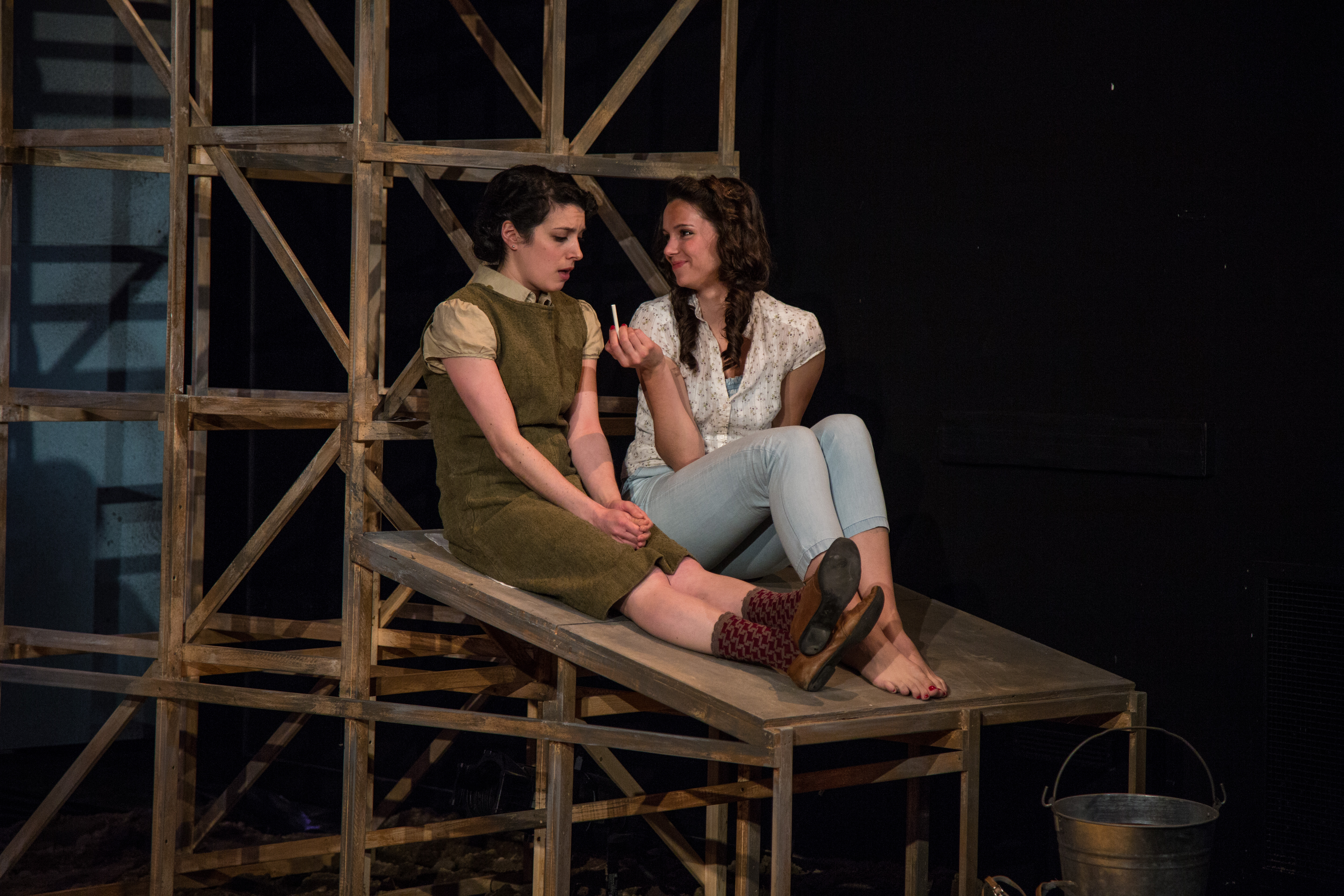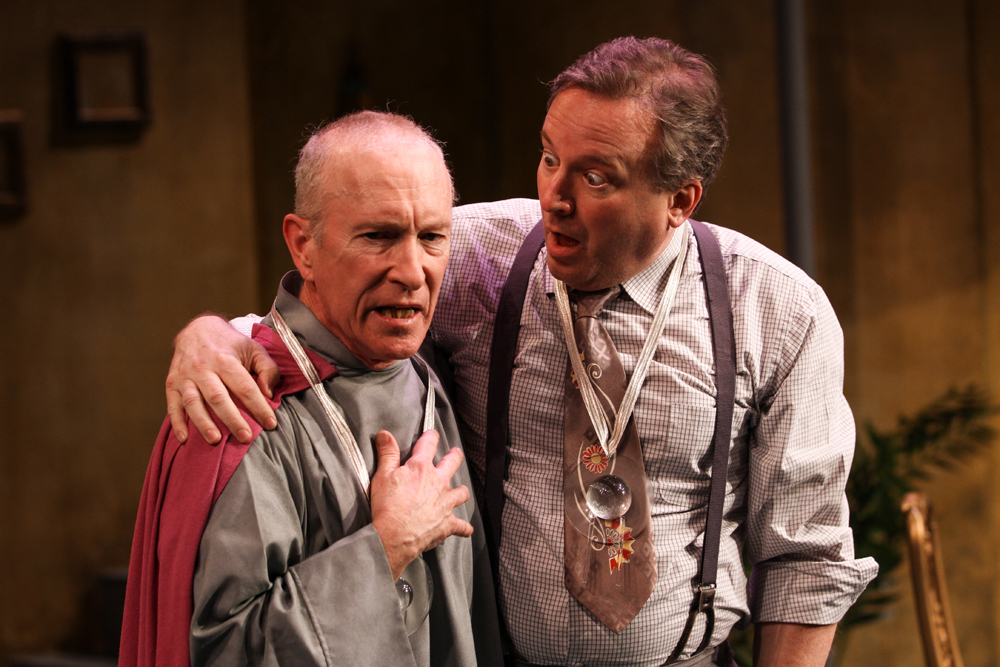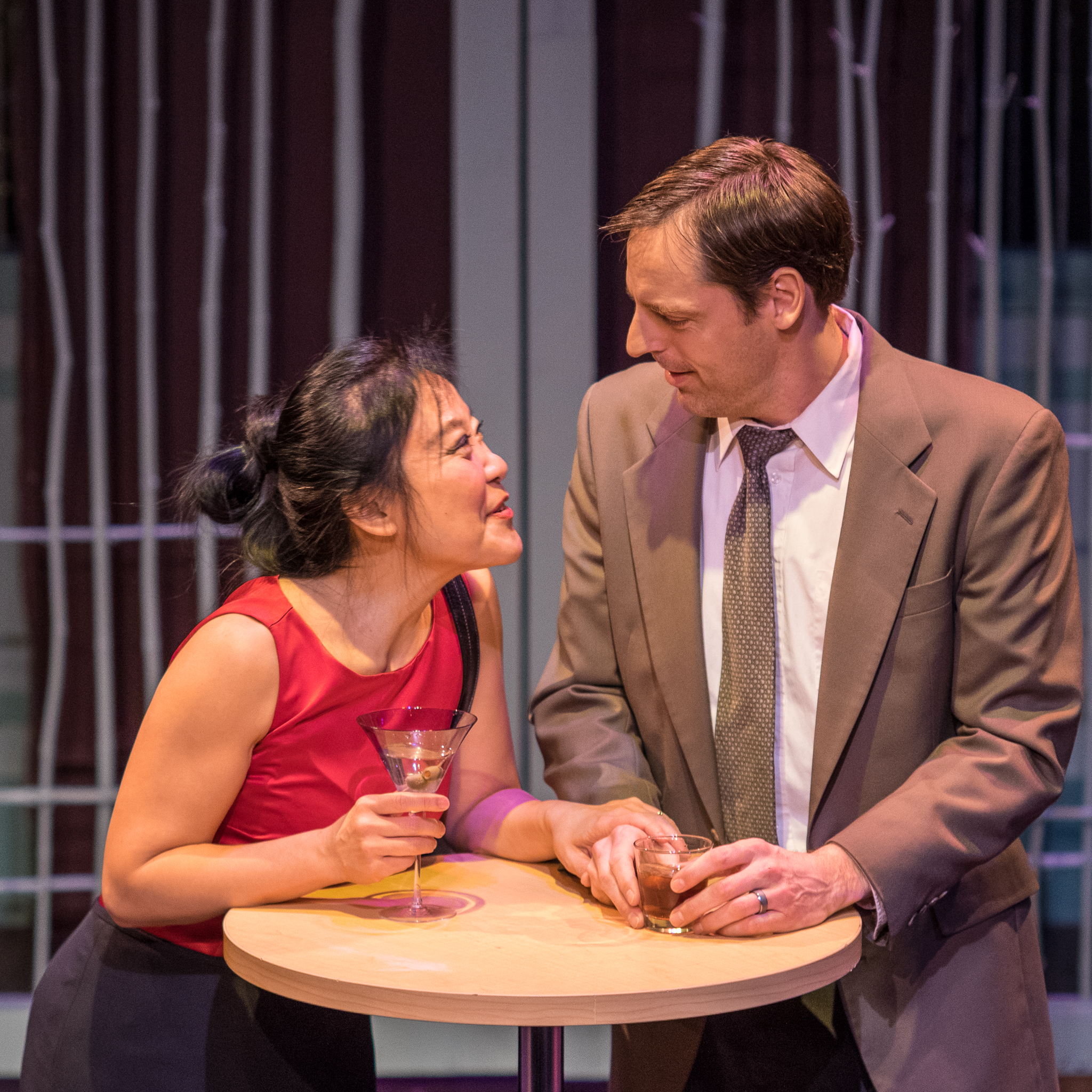In 1954, Joseph Papp produced the first “Shakespeare in the Park” festival in Lower Manhattan. Today, those who wish to attend the New York City Shakespeare Festival might arrive as early as 6 a.m. to ensure seats for an evening performance in Central Park. Cities across the globe have adopted this model, bringing free classic theater to the masses. Now in its 10th season, Wooden O—Seattle Shakespeare Company’s outdoor performance arm—is doing the same in parks around Puget Sound.
In The Two Gentlemen of Verona, director David Quicksall creates a milieu defined by greaser youths in denim and leather, jukeboxes, Coca-Cola, bowling, and anything that fits the tastes of mid-century America. You know you’re in Verona when you see the giant billboard that declares your location. You know you’ve met the two gents when you see their Brando-esque slicked-back hair, white T-shirts under leather jackets, and motorcycle-revving. Verona is their Coney Island. Doo-wop and rock are their soundtrack. (No, really, there is a live soundtrack sung by the cast: It interjects and, at times, informs the plot.)
Proteus (Jason Marr) and Valentine (Conner Neddersen) are best buds who spend their days joyriding through Verona. Proteus is in love with hula hoop-skirted Julia (Angelica Duncan)—and here the cast sings the Monotones’ “Book of Love.” Fate splits the two friends as Valentine goes to serve in the court of the Duke of Milan (Jim Gall) and falls for his daughter Silvia (Carolyn Marie Monroe); this prompts “Duke of Earl.” Proteus’ father then splits Proteus from Julia and dispatches him to join Valentine in Milan. Love is flippant—and Proteus quickly makes unwanted advances on Silvia.
What ensues is a comedy of plotting, conniving, scheming, and cross-dressing (cue sing-along to “Walk Like a Man”), plus a clownish servant and his stoic dog. It’s a quirky, retro take on what some consider to be Shakespeare’s first play—and perhaps his weakest. Thematically, Two Gents touches on notions that are seen in many of the Bard’s later, greater works—mistaken identities, love, friendship, betrayal, femininity, and the equivocal nature of words versus action.
Call it an experiment or rough draft; regardless, it’s still enjoyable. Like every other Shakespearean comedy, it cutely—even if not tidily—ties up the loose ends. All qualms, quarrels, and plot complications are brushed under the proverbial rug. The blandness of this play reflects the writing, not the production. Wooden O stages popular performances that rival anything confined by a proscenium arch. (An all-female Julius Caesar is running concurrently on a different schedule.) Two Gents needs some spice, and it gets it here.
Free. See seattleshakespeare.org for park locations and schedule. Ends Aug. 10.
stage@seattleweekly.com








